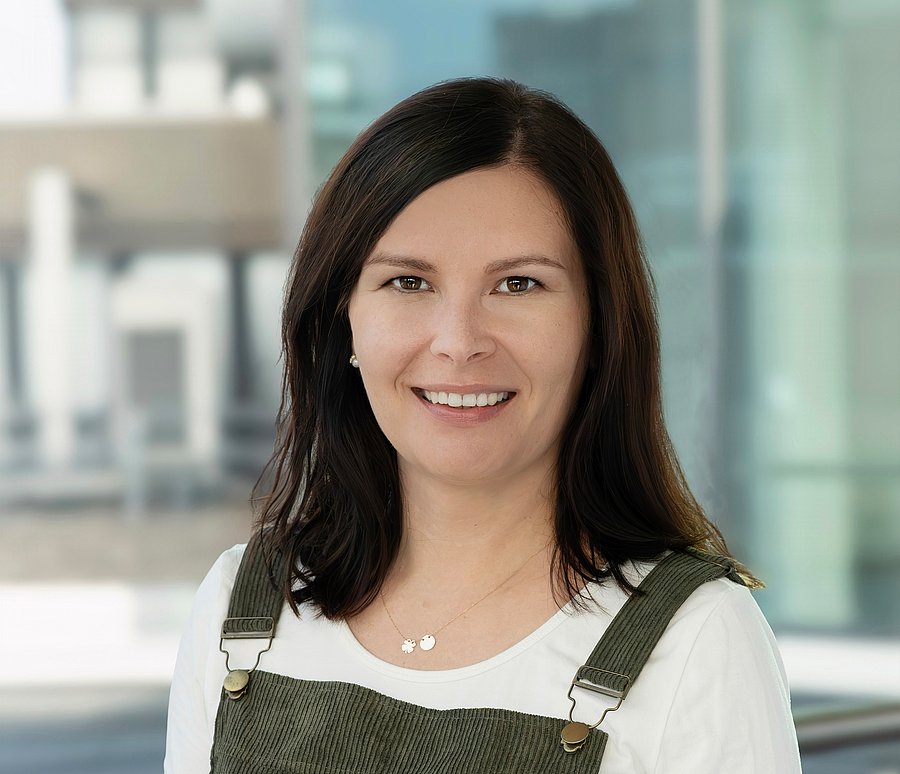Interview
"Facing change with ease"

The new head of the Department of Academic and Student Affairs: Anna Konopka. // Photo Friederike von Heyden
Why did you decide to take on the position of Head of Department 3?
In my previous work as a manager, I reached the limits of what I could influence. The next step - the opportunity to help shape the university administration in a future-oriented way - is what particularly interests me about this new position.
What challenges do you see in the future?
One of the biggest challenges for a unit that is responsible for all administrative processes relating to studies is likely to be the changing demands on the level of service required with each new generation of students. For example, 15 years ago, 95 per cent of first-year students still used the university website to find out about the University of Wuppertal and our degree programmes before starting their studies; today, the figure is still a high 88 per cent. Although social media is gaining in importance as a source of information, the popularity of printed information materials and face-to-face events does not appear to be declining. Such developments need to be adequately taken into account in order to reach prospective students and provide our students with good support in the administrative processes surrounding their studies.
What plans do you have for the next few years?
My plan is to support the university management in implementing the strategic goals that are still to be defined in the university development plan from 2026. However, I don't have a long list of topics and work objectives; these will only fill up over time and will certainly change constantly.
What are you looking forward to?
I'm looking forward to my new colleagues, because we can only master the challenges of the future as a team. I expect a wide range of ideas and the courage to realise them.
You've been here for 20 years. How has the University of Wuppertal changed over time?
When walking around the campus, the construction work is very noticeable, but a lot has already happened in the last 20 years. The new K and VW buildings constructed during this time give an idea of what the campus could look like in the future. But the university administration is also undergoing a transformation. Traditional administrative processes are giving way to digital processes, filing cabinets and hanging files are being replaced by cloud solutions and shared drives. Our common goal for the next 20 years should be to meet these and other as yet unforeseen changes with ease.
You also know the university from a student's perspective: what role does that play in your work today?
A few years have passed since I graduated and, like me, my fellow students at the time are now in the midst of their careers and families. I have maintained many contacts from my student days and we like to look back together nostalgically on our time at the University of Wuppertal. If I had a mission, it would be to enable students to have an equally enjoyable and carefree time studying with streamlined administrative processes.
Studying then, studying now - what has changed?
Hardly any of the enrolled students today will remember the general tuition fees; I belonged to the group of students who had to pay them. In addition to the politically motivated changes, there was also a change brought about by advancing digitalisation. I think online enrolment and the ability to submit documents to the examination office digitally are great developments. I still documented my studies completely with paper certificates, filed in a green student handbook. Furthermore, user behaviour is also adapting to the availability of study support services almost around the clock. We are currently observing that students are, for example, registering for exams or booking courses online at rather unusual times. In the past, these steps were still carried out in analogue form and inevitably during normal office hours.
About the person
Born in Poland, she studied Business Mathematics (Bachelor) and Mathematics (Master) at the University of Wuppertal. Anna Konopka focused on the topics of process optimisation and interfaces while working in the University Service Quality in Studies and Teaching and then in the central university administration: first in the Department of Planning and from 2014 in the Department of Studies, Teaching and Quality Management. There she was most recently head of the Study and Teaching section and was responsible for the coordination and administration of parts of the HISinOn campus management system. In this context, she was responsible for various interfaces between administrative units, faculties, ZIM and the rectorate.
